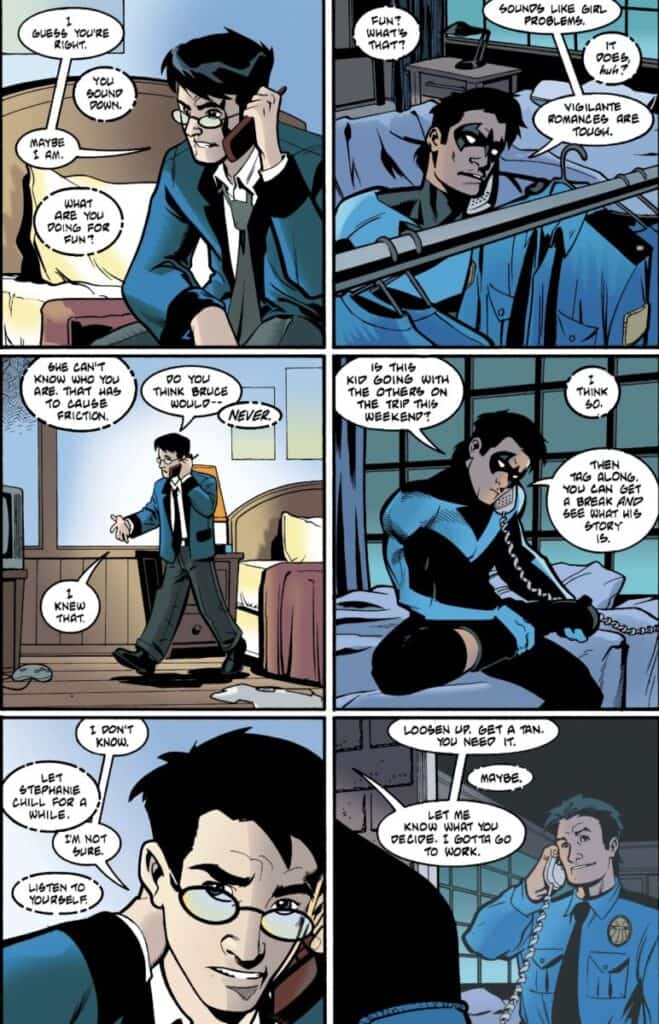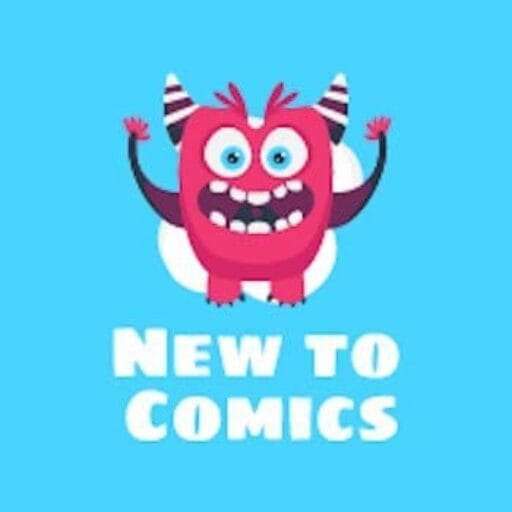***Contains Spoilers***
The Robin solo series by Chuck Dixon, spanning #1-100, picks up in a challenging moment for Tim Drake. Bruce Wayne is out of commission after Knightfall, his father is gone, and Jean-Paul Valley (Azrael) boots him from the Batcave. From there, Dixon’s run explores Tim’s growth as Robin, mostly working solo, but with meaningful team-ups—especially with Huntress, Spoiler, and Shotgun. Dixon’s run on the series intertwines with all the significant events like Cataclysm, No Man’s Land, and Officer Down, showcasing Tim’s evolving relationships and personal struggles.
What I liked most about this run was seeing Tim carve out his own identity outside Batman’s shadow. He’s often solo here, and it’s refreshing to see how he handles being Robin without Bruce constantly directing him. Tim’s dynamic with Stephanie Brown, aka Spoiler, is a major highlight. Their chemistry has a Catwoman-esque tension, playful but earnest, and their first kiss during Final Night is a standout moment. Stephanie’s pregnancy storyline leading into No Man’s Land was unexpectedly compelling, giving her character more depth and reinforcing her importance in Tim’s life. Another fascinating stretch was Tim’s spontaneous “reset” in Europe—abandoning his problems at home for a clean slate. It was a bold move for his character and set the stage for his eventual return to Gotham and the looming Cataclysm arc.
I also enjoyed the moments of levity, like Tim showing up in Keystone City at the start of No Man’s Land and trying to team with Wally West. That contrast between Tim’s grounded, methodical approach and Wally’s carefree attitude was fun to watch, even if it felt a bit out of place. The inclusion of Alfred when Tim later heads to boarding school was another intriguing shift, though it quickly devolved into the same patterns as Tim’s high school days—familiar but slightly redundant.

That said, not everything in Dixon’s run worked for me. Tim’s relationship with Ariana was a weak link. There was little chemistry, and it felt like filler compared to the much stronger dynamic with Stephanie. Speaking of Batman, this series also highlighted Bruce’s frustrating tendencies. One major example is after Officer Down when Batman tells Stephanie his secret identity, completely disregarding Tim’s feelings and trust. It was an infuriating moment, especially considering Steph wasn’t even in immediate danger. Instances like this make you question why the Bat-family holds Bruce in such high regard when he often fails them as a leader and mentor.
Ultimately, Dixon’s Robin run successfully balances Tim’s solo adventures with major crossover events, from Knightfall to Bruce Wayne: Murderer/Fugitive. Tim’s side team—Huntress, Spoiler, and Shotgun—added variety and a sense of camaraderie. While some storylines felt repetitive, the character work with Tim and Stephanie kept me engaged. Tim’s development as a young hero is the heart of this run, and it’s satisfying to see him grow into his own. For that, I give it 3 stars. It’s an enjoyable read that I plan to revisit, but it doesn’t quite reach the level of a must-read classic.
Feature Image Robin #16 cover art by Tom Grummett and Ray Kryssing
Keep NewToComics.com running with a donation or shopping with through our affiliates—your support helps maintain the site and continue guiding new readers into the world of comics!


